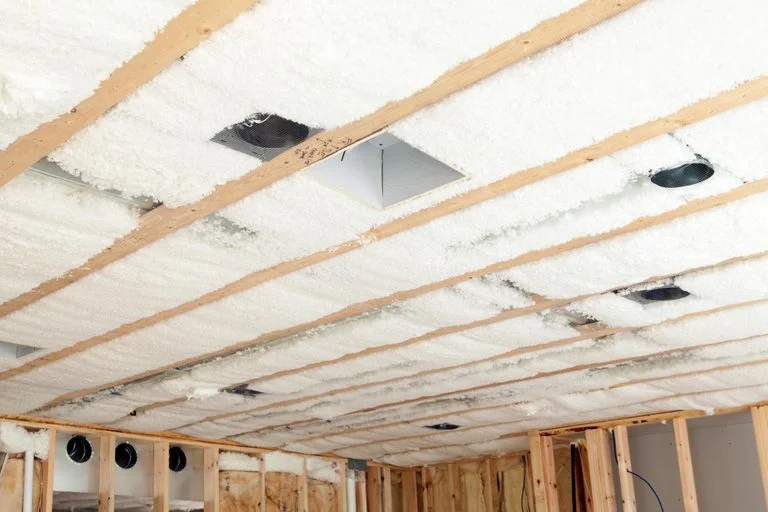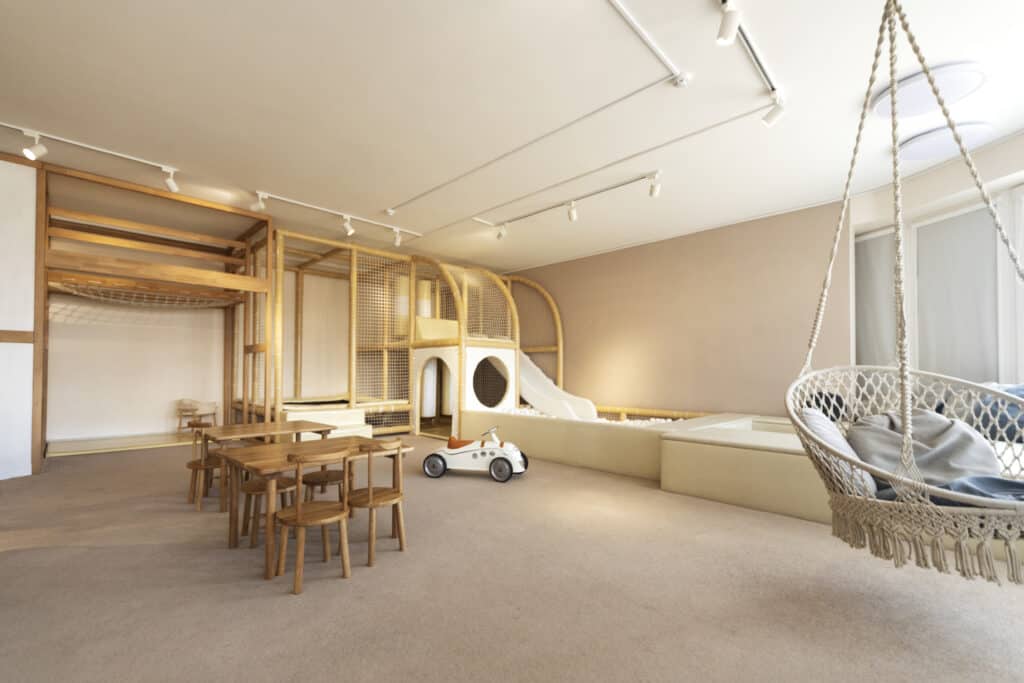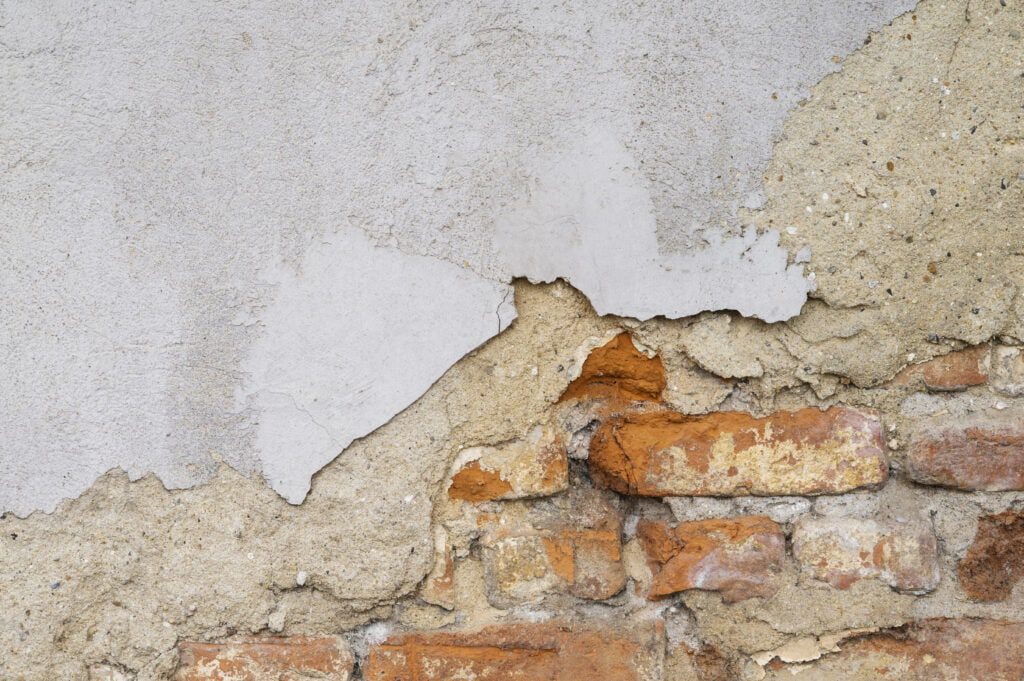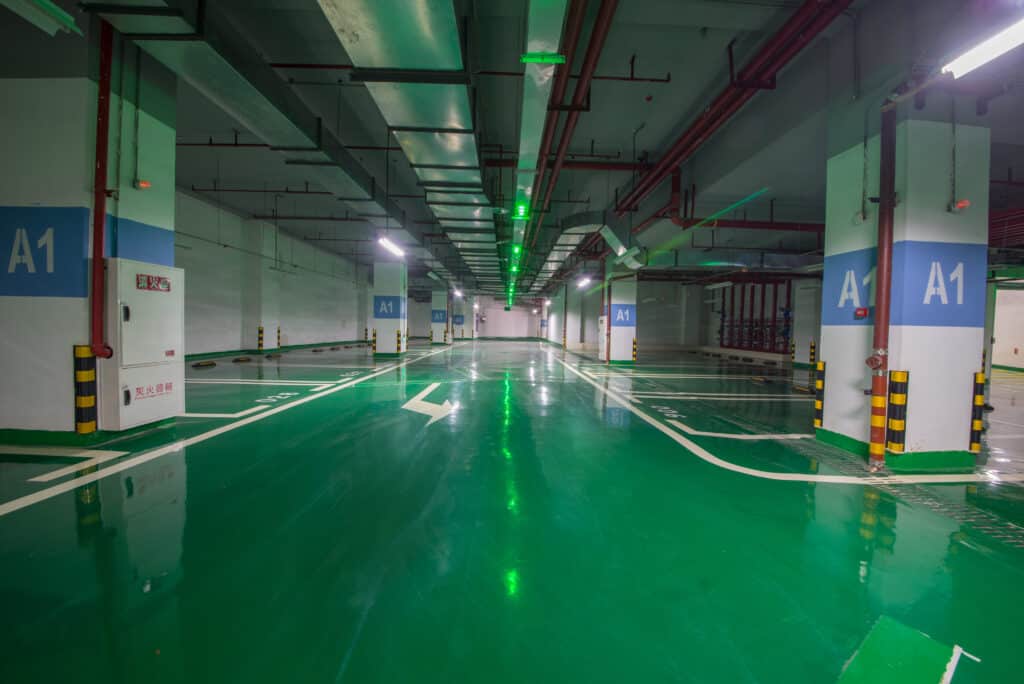Hello, fellow enthusiast for house improvement! You must be sick of hearing every chat, chair squeak, and footfall from the floor above if you’re reading this. You’re in luck because we’re going to get right into the world of soundproof basement ceilings.
Let’s face it, nobody wants to reside in a home where they are unable to enjoy some solitude. A noisy ceiling can be a huge turnoff whether you’re converting your basement into a home theatre, a comfortable guest room, or just a relaxing hangout area. But don’t worry! Our team has your back. We’ll lead you through the necessary advice and techniques in this manual so you may turn your basement into a peaceful haven.
Table of Contents
Why Would You Soundproof Basement Ceiling?
1. Noise Reduction: This is perhaps the most obvious reason. Soundproofing a ceiling helps to reduce or even eliminate the transmission of noise from one floor to another. If you have a noisy neighbor above you, a bustling household, or live in an urban area with constant street noise, soundproofing your ceiling can provide a quieter, more peaceful environment.
2. Privacy: Soundproofing isn’t just about blocking external noise; it’s also about maintaining privacy within your own space. Whether you’re in a shared living arrangement or simply want to keep conversations and activities confidential, soundproofing can create a barrier that prevents sound from traveling.
3. Improved Sleep Quality: Noise disruptions can be a significant hindrance to a good night’s sleep. By soundproofing your ceiling, you can create a tranquil bedroom environment, allowing you to sleep more soundly and wake up refreshed.
4. Home Theater or Entertainment Space: If you’re transforming your basement into a home theater, game room, or entertainment space, soundproofing is a must. It ensures that you can crank up the volume for movies or music without disturbing the rest of the household or, worse, annoying the neighbors.
5. Increase Property Value: Soundproofing can add value to your property. Potential buyers or renters are often willing to pay more for a home that offers a quiet and peaceful living environment, especially in noisy urban areas.
6. Legal Requirements: In some cases, local building codes or housing regulations may require soundproofing measures, particularly in multi-unit dwellings like apartments or condos. Failing to meet these requirements can lead to legal issues, so soundproofing becomes a necessity.
7. Work-from-Home Productivity: With the rise of remote work, creating a quiet and distraction-free workspace at home has become essential. Soundproofing can help you concentrate better and improve your productivity.
8. Protect Sensitive Equipment: If you have valuable or sensitive equipment in your basement, such as musical instruments, recording studios, or servers, soundproofing can safeguard them from external noise and vibrations.
9. Maintain Neighborly Relations: Excessive noise can strain neighborly relations. By soundproofing your ceiling, you can be a considerate neighbor and reduce the chances of noise-related disputes.
10. Comfort and Well-being: Ultimately, soundproofing just makes your life better in general. By establishing a place where you can unwind, concentrate, and take in your surroundings without being continuously distracted by unwelcome noise, it offers comfort, eases tension, and enhances feelings of wellbeing.
What Are the Best Ways to Soundproof Basement Ceiling?
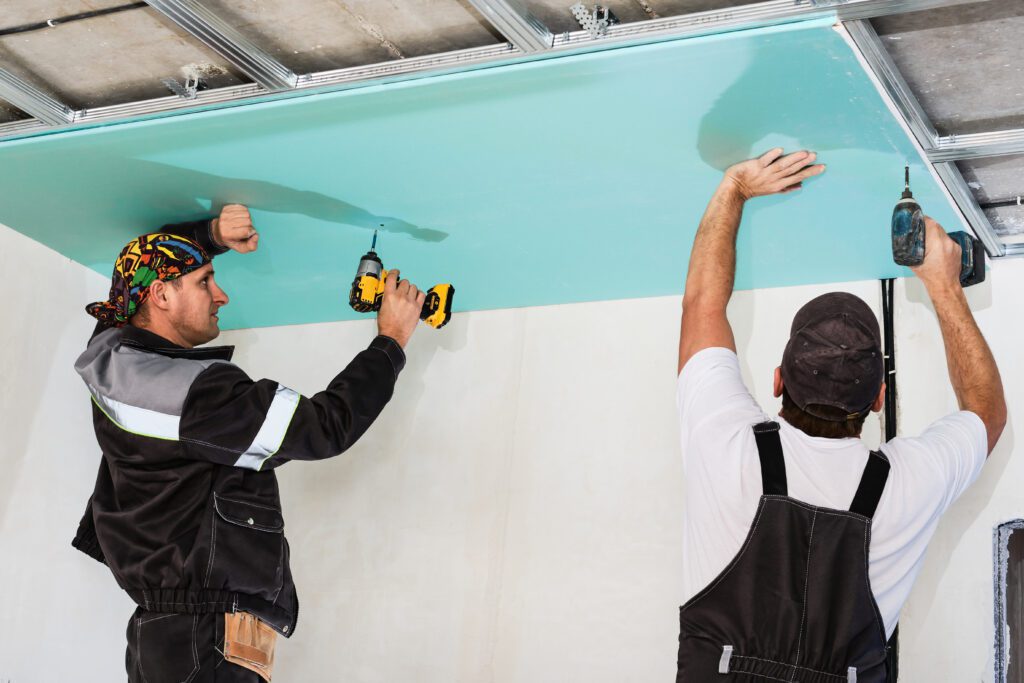
Soundproofing a basement ceiling effectively requires a combination of techniques and materials to minimize the transmission of sound from the floor above. Here are some of the best ways to soundproof a basement ceiling:
1. Mass-Loaded Vinyl (MLV): Mass-loaded vinyl is a dense, flexible material that’s highly effective at blocking sound transmission. It’s like adding a soundproofing blanket to your ceiling. Hang MLV sheets from the ceiling joists to create a barrier that absorbs and reflects sound.
2. Acoustic Panels: Acoustic panels are designed to absorb sound waves, reducing echoes and noise bounce. They not only improve sound quality within the room but also help prevent sound from escaping through the ceiling. Install acoustic panels strategically on the ceiling’s surface.
3. Green Glue: Green Glue is a viscoelastic compound that’s applied between layers of drywall. It converts sound energy into heat, damping vibrations, and significantly reducing sound transmission. When adding a second layer of drywall, use Green Glue as the adhesive for optimal results.
4. Double Drywall: Installing a second layer of drywall can be highly effective in soundproofing. Be sure to stagger the seams of the second layer with those of the first layer to minimize sound transmission. Use resilient channels (also known as sound isolation clips) to further decouple the drywall from the joists.
5. Acoustic Caulk: Seal any gaps, cracks, or seams in the ceiling with acoustic caulk. Even small openings can allow sound to travel through, so pay attention to details.
6. Insulation: Filling the space between the ceiling joists with soundproof insulation, such as fiberglass or mineral wool, can absorb sound and reduce its transmission. Insulation is particularly effective in dampening airborne sound.
7. Mass and Density: Increasing the mass and density of your ceiling materials can help block sound. Choose heavy drywall, such as 5/8-inch drywall, for the second layer, and consider using additional mass-loaded vinyl or other dense materials.
8. Resilient Channels: These metal or plastic strips are attached to the ceiling joists before installing drywall. They create an air gap between the drywall and the joists, reducing the direct transfer of sound vibrations.
9. Soundproof Paint: Soundproof paint, also known as acoustic paint, contains sound-damping compounds. Applying it as a finishing layer on your drywall can provide an extra level of soundproofing.
10. Area Rugs and Carpets: If the floor above has hard surfaces like hardwood or tile, adding area rugs or carpets can help absorb impact noise and reduce sound transmission.
11. Furniture Placement: Strategically arranging furniture and décor in the room can help absorb sound and prevent it from bouncing off hard surfaces.
12. Soundproofing Clips and Hangers: These specialized hardware options can further isolate the ceiling from the floor above, reducing the transmission of vibrations and sound.
13. Soundproofing Underlayment: If you’re installing flooring in the basement, consider using soundproofing underlayment beneath it to reduce impact noise.
Remember that the effectiveness of soundproofing depends on various factors, including the type of noise you’re dealing with and the construction of your home. In some cases, it may be best to consult with a professional soundproofing expert who can assess your specific situation and recommend the most appropriate solutions.
What is the Best Insulation For Soundproofing Basement Ceiling?
When it comes to soundproofing a basement ceiling, choosing the right insulation material is crucial for effectively reducing sound transmission. The best insulation for soundproofing a basement ceiling is one that has both excellent sound-absorbing and sound-blocking properties. Here are some of the top insulation options to consider:
- Mineral Wool Insulation (Rockwool): Mineral wool insulation, often referred to as Rockwool, is a top choice for soundproofing. It is dense and provides excellent sound absorption, making it effective at reducing both airborne and impact noise. It’s also fire-resistant and moisture-resistant, making it suitable for basement use.
- Fiberglass Insulation: Fiberglass insulation is widely available and more affordable than some other options. It offers decent sound-absorbing properties and can help reduce airborne noise effectively. However, for optimal soundproofing, it’s recommended to choose higher-density fiberglass batts.
- Cellulose Insulation: Cellulose insulation is made from recycled paper and treated with fire retardants. It is dense and can provide good sound absorption, especially when installed in thick layers. However, it’s essential to ensure it remains dry, as moisture can reduce its effectiveness.
- Spray Foam Insulation: Closed-cell spray foam insulation can be effective at reducing sound transmission. It expands to fill gaps and provides an airtight seal, which can help block both airborne and impact noise. However, it tends to be more expensive than other insulation options.
- Mass-Loaded Vinyl (MLV): While not a traditional insulation material, mass-loaded vinyl is worth mentioning for its exceptional sound-blocking properties. It’s a dense, flexible sheet that can be installed between layers of drywall or hung from the ceiling joists. MLV effectively blocks sound but should be used in conjunction with sound-absorbing materials for optimal results.
- Specialized Soundproofing Insulation: Some manufacturers offer specialized soundproofing insulation products designed explicitly for noise reduction. These products may combine materials like mineral wool or fiberglass with additional soundproofing layers for improved performance.
When selecting insulation for your basement ceiling, consider the following factors:
- Density: Higher-density insulation typically provides better soundproofing. Look for insulation with a high NRC (Noise Reduction Coefficient) and STC (Sound Transmission Class) rating.
- Installation: Proper installation is essential for maximizing soundproofing benefits. Ensure that insulation is installed snugly and without gaps, and follow the manufacturer’s recommendations.
- Budget: Consider your budget, as some soundproofing insulation materials can be more expensive than others.
- Moisture Resistance: Basements can be prone to moisture issues. Choose insulation that is resistant to moisture and mold growth to prevent future problems.
- Fire Resistance: Look for insulation with fire-resistant properties, especially in areas where fire safety is a concern.
Ultimately, the best insulation for your basement ceiling will depend on your specific needs, budget, and the level of soundproofing you aim to achieve. Combining insulation with other soundproofing techniques, such as mass-loaded vinyl, acoustic panels, and double drywall, can further enhance the overall soundproofing performance of your basement ceiling.
Frequently Asked Questions
Q: How can I soundproof my basement cheaply?
To soundproof your basement on a budget, start by sealing any gaps or cracks with caulk, weatherstripping, or foam insulation. Use heavy curtains or thick blankets to cover windows and doors, and consider adding inexpensive foam panels or acoustic tiles to the walls and ceiling. Place rugs or carpets on the floor to absorb sound, and rearrange furniture to create sound barriers. These affordable measures can significantly reduce noise transmission in your basement.
Q: How do you soundproof a finished basement ceiling?
Using strong channels is one method for doing this. Metal strips called resilient channels are fastened to the joists. They serve to reduce noise transmission and offer a place for the plasterboard to be put in. Adding mass-loaded vinyl is an additional method of soundproofing a basement ceiling.
Q: Is it hard to soundproof a basement?
Soundproofing a basement can be moderately challenging, but the difficulty depends on factors like the desired level of soundproofing and the existing construction of the basement.
Also Read: 7 Ideas to Cover Basement Ceiling

